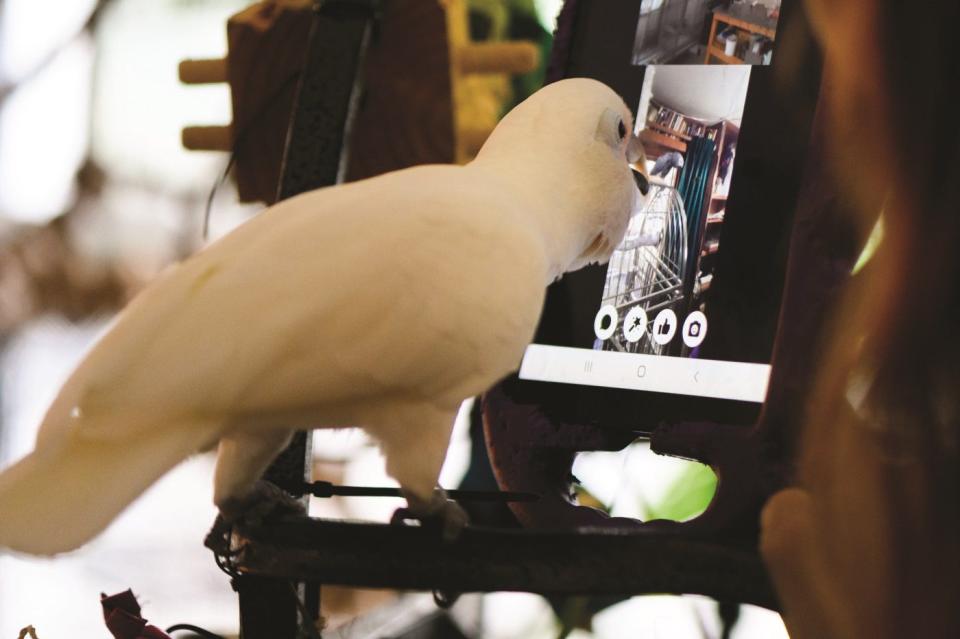Brushing a dog's teeth is the gold standard for keeping teeth and gums healthy
Q: Can dental chews really help my dog’s teeth? What kind should I buy?
A: While brushing your dog’s teeth daily is the gold standard for keeping teeth and gums healthy, chances are good that you do it only sporadically, if at all. So while I still encourage you to do that, I’m happy to let you know that dental chews can aid in reducing tartar and keeping pet teeth clean — science confirms it. A 2020 study published in the Journal of Animal Science (ncbi.nlm.nih.gov/pmc/ articles/PMC7511057) found that giving a daily dental chew could help slow the development and progression of periodontal disease in dogs.
Avoid chews that are too hard, like bones or antlers. If a chew would hurt if you banged your knee with it, it’s too hard. I asked veterinary dentist Jan Bellows for some additional tips. Here’s what he says:
1. The chew must be safe, digestible and soluble so it will dissolve rapidly and not get caught in the esophagus or intestines, requiring surgery.
2. The chew should contain GRAS (generally regarded as safe) ingredients with few chemicals.
3. The chew should be nutritionally complete.
4. The chew should have proven dental benefits (decreased production of plaque and/or tartar).
5. Most important, the chew should be accepted by the Veterinary Oral Health Council (VOHC.org). VOHC reviews applications from chews that have conducted two double-blinded studies that not only show at least 20% plaque/tartar retardation, but are also considered safe.
Dental chews work best when your dog has had a comprehensive dental exam to identify and treat any problems and when you combine their use with an annual professional cleaning performed under anesthesia so your veterinarian can take dental X-rays, clean beneath the gumline and extract any teeth that are broken or causing issues in the mouth.
— Dr. Marty Becker
PET BUZZ
Parrots flock to video calls
Parrots are highly intelligent and social, but when it comes to meeting their complex cognitive and emotional needs, they often don’t have opportunities to soar. A study that taught parrots to video call each other may be a first step toward remedying that. Eighteen birds of different parrot species, including African greys, cockatiels and macaws, took part in the three-month study, which produced more than 1,000 hours of video observations of the birds’ behavior. With the support of their human caretakers, they learned how to place calls to each other whenever they wanted. Participating parrots engaged more regularly in social behavior like preening, singing and play, and parrots who made the most calls also received more calls. Find out more here: gla.ac.uk/news/ headline_949129_en.html.

Siamese not the only chatty catties
Siamese have a reputation as the chatty catties of the feline world (uexpress.com/pets/petconnection/2022/09/19), but they’re not the only ones. Other members of the so-called Oriental family of cats, such as Balinese, Orientals, Tonkinese, Bombays and Burmese, usually share their gift of gab. For a quieter companion, look to breeds such as the Persian, Maine coon and Norwegian forest cat.
Pets allowed in long-term hospitals helps with mental well-being
A hospital in Sint-Truiden, Belgium, has built a pavilion to allow pet visits for long-term care patients, Reuters reports. Pets weren’t allowed in St. Trudo Hospital, so patients had to see them in the courtyard. The new indoor space, which is separate from but connected to the hospital building, enables people to have visits with their dogs or cats for an hour per week, thanks to funding from a cancer charity. "For long-term hospital residents, mental well-being is very important in their recovery, and reconnecting with pets really helps," said hospital spokesperson Miet Driesen. Starting in September, the hospital also plans to use the pavilion for animal-assisted therapy sessions to aid mental and motor skill rehabilitation.
Do you have a pet question? Send it to askpetconnection@gmail.com or visit Facebook.com/DrMartyBecker. Pet Connection is produced by veterinarian Dr. Marty Becker, journalist Kim Campbell Thornton, and dog trainer/behavior consultant Mikkel Becker. ©2023 Andrews McMeel Syndication
This article originally appeared on South Bend Tribune: Pet Connection: Are dental chews good for dog's teeth?

